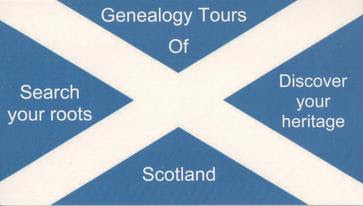Social media was on fire today with the news that precious original documents have been damaged at New Register House thanks largely to indifference.
The building that houses the National Records of Scotland, ScotlandsPeople Centre and the Court of the Lord Lyon was purpose built to preserve the growing number of government documents. The building of what is now General Register House was an 11 year process, from 1774-1785. That was 234 years ago.
New Register House was added in 1869 to provide much needed storage for the documents that were being created following Statutory Registration in 1855. While perhaps a more modern addition, it is still a century and a half old.
Unlike today, in 1869 next to no one in Scotland or elsewhere for that matter cared about genealogical research. Fast forward to 1977 when the western world was gripped by the new "mini series" Roots. That sparked an interest in learning more about our ancestors. The interest in the 21st century, with the easy access to records online and user friendly platforms to assist with building, storing and sharing family trees has grown exponentially.
In response to this came innovation out of Register House in 2002, with the digitization of vital documents and making them available on the world wide web. More innovation in 2007 when dedicated research space was created for people to come in - literally off the street - to research their Scottish ancestors.
The world wide web soared in growth and more and more digitized records became available online. In response, the NRS changed service providers for their online presence, with a promise to bringing large sets of records online. Records such as Kirk Sessions and Court Records. Despite the records already sitting in virtual volumes, the promise of moving them onto the website has been rife with indecision, lack of follow through, lack of open, honest communication and has, ultimately, resulted in a false promise that has never or perhaps will never become reality.
It is this same indecision and lack of follow through that led to the disaster last week of records being damaged as a result of recent torrential rain. Rain isn't new for Scotland. However, as the earth warms, the storms pack a bigger punch. Staff at the NRS noticed that the dome in West Register House sprung leaks whenever the rain was more than what Scotland had been accustomed to in 1869. These same staff raised concern. Repeatedly. And yet, like the promise of large record sets coming online, nothing was done. This indifference, indecision and lack of follow through has now resulted in disaster. Ruined documents.
It's not enough to breathe a sigh of relief that the documents are digitized. They were digitized nearly two decades ago when the technology for digitizing was fairly new. It is not uncommon to find a document that is underexposed, overexposed or otherwise unreadable. When asked, the registrars are incredibly accommodating about returning to the original registers and re-scanning the page (using more modern technology) so that it is more legible. The public has no access to original records if they have been digitized. But the registrars certainly do and their job will be far more difficult as a result of the water damage from the leaky roof that no one took responsibility for fixing.
The mind boggles that in a building full of archivists and registrars, the safe preservation of original documents hasn't been set as priority one. Five years ago, the NRS undertook an Estates Review and recognized the need for a new venue.
We need a new purpose built archives for government documents. One with adequate storage so that records can be accessed within an hour rather than within a day or two. A building without leaky roofs. I think of the Highland Archives in Inverness, the Glasgow Women's Library, the National Library of Scotland and the Mitchell Library when it comes to more modern research space and adequate storage.
While the Highland Archives is a very modern building, the others aren't. It IS possible to have both aesthetics and functionality. But that can't happen with indifference, indecision and lack of follow through.
Pages
Tuesday 30 July 2019
Friday 12 July 2019
In Search of Your Scottish Ancestors: British Institute
I
will be teaching the Scottish course at this year's British Institute in Salt
Lake City. The Institute allows for an intense week of learning and research.
The classroom experience is in the morning followed by an afternoon, early
evening of research at the Family History Library.
The
course will cover the following topics over the course of the week:
·
Researching Scottish Ancestors – The Basics
·
Breaking Through Brick Walls
·
Online and Offline Resources for Scottish Research
·
Genealogy Resources in Scottish Archives (NRS, Local and
University)
·
Genealogy Gems in Scottish Libraries
·
Mapping Your Scottish Ancestors
·
Those Poor Daft Scots – Poor Law and Asylum Records
·
Researching Scottish Occupations
·
Researching Scottish Criminal Ancestors
·
The Highland Clearances – Before and After
·
Settling in America
·
Settling in Canada
·
Hudson's Bay Ancestors and Metis resources
·
British Home Children and Farm Servants
·
Customs, Superstitions and Traditions
·
Preparing for a Genealogy Research Trip to Scotland
For
more info on the British Institute:
Friday 5 July 2019
Speakers Confirmed for Scottish ViC 2020
|
Subscribe to:
Posts (Atom)




